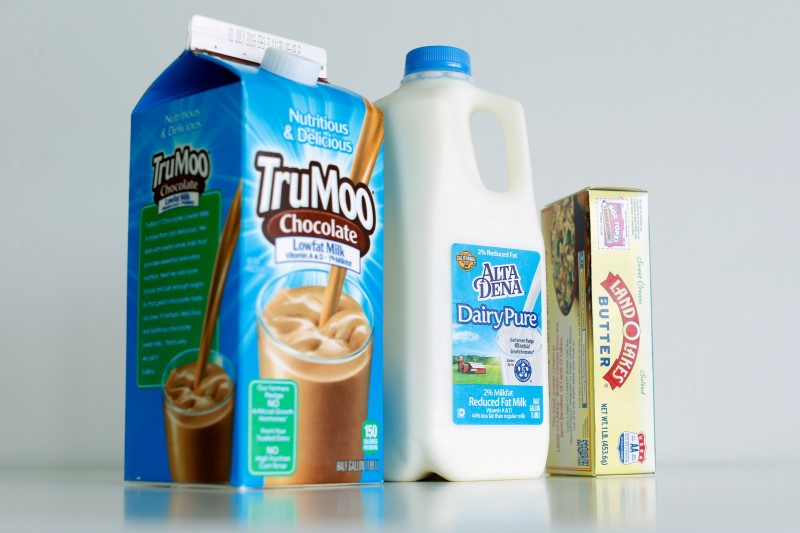(Bloomberg) -- Everything from improving milk prices to a cool, wet spring -- it’s all bad news for Dean Foods Co., the top U.S. milk processor.
Years of unprofitable milk prices have caused so many small dairies to go bust in recent months that the market has finally turned around. Milk prices have been trending higher, and that’s great for the farmers who are left standing. But the steep inflation in milk prices caught Dean Foods off guard.
Raw-milk costs were up 12% in the company’s second quarter from a year ago, and inflation will continue. In the third quarter, Dean’s costs will rise 19%, “significantly higher than we had originally anticipated,” said Chief Financial Officer Jody Macedonio. The company reported a wider-than-expected loss that sent its shares and bonds plunging.
“Milk prices are still high because we continue to see farm consolidation and the herd size is down aggressively,” said Alyssa Badger, director of operations at HighGround Dairy in Chicago. “Production growth has halted and been very muted through the spring,” which is when cows in the U.S. are typically flush with milk.
Benchmark futures for the type of milk used to make cheese touched $17.91 per hundredweight on Tuesday. Bigger dairies, which have recently bought out many of the smaller ones, can break even at around $14, Badger said.
The ice-cream industry was another casualty of the cold, rainy weather in the U.S. spring and early summer, along with the corn farmers that delayed planting and meat companies that lost out on grilling business.
Dean Foods said it saw negative impacts to its ice cream business, similar to its competitors. Ice cream on the shelves at grocery stores also suffered, Badger said.
In addition to the steep cost increases for raw materials, Macedonio said the company also saw retail milk sales decline at a faster pace.
While the trend has been for sales to shrink around 2% a year in recent years, in Dean’s second quarter, the pace accelerated, even amid retail prices that are at historic lows compared to costs, she said. This further chipped away at the volumes of milk Dean is able to sell.
“The category is currently undergoing significant changes,” as consumers are bombarded with non-milk beverage options, she said.
